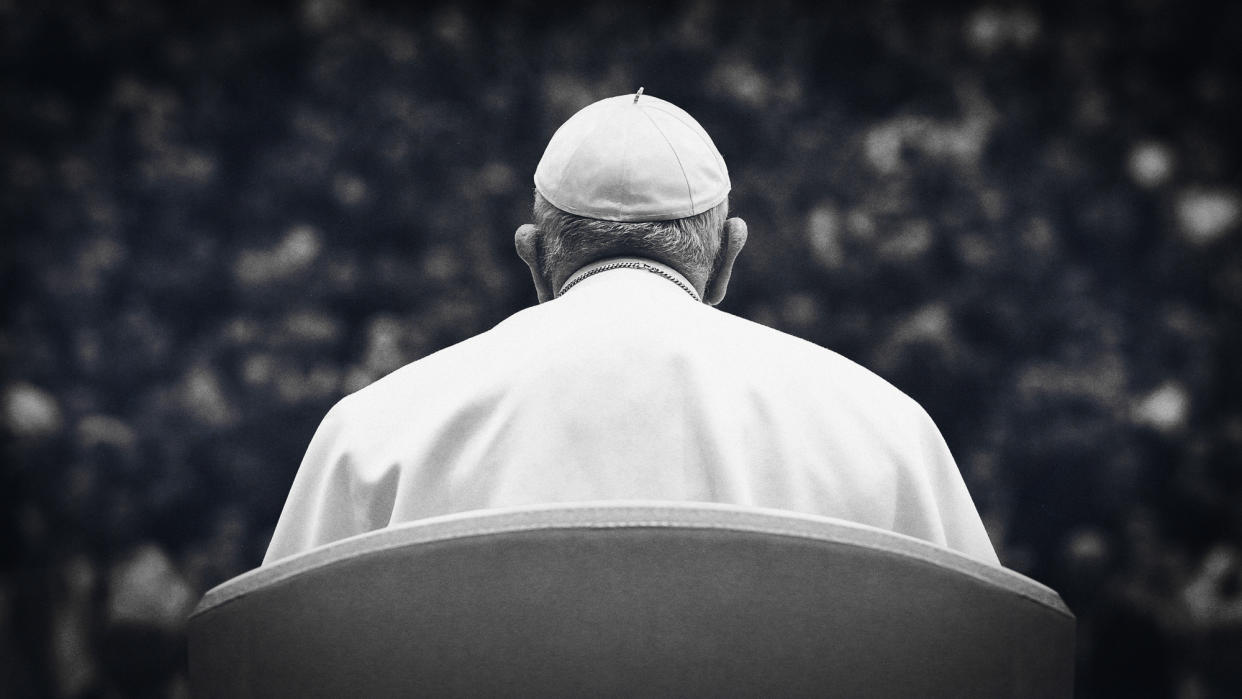The Catholic Church's Synod: which off-limits issues are now on the agenda?

- Oops!Something went wrong.Please try again later.
- Oops!Something went wrong.Please try again later.
The Catholic Church is holding a significant meeting at the Vatican this week, which some observers believe could become the major work of Pope Francis's papacy.
The Synod may lay the groundwork for important changes for previously taboo subjects such as married priests and the blessing of gay unions.
Conservative Catholics, especially those in the United States, are watching the meeting "with dread and deep mistrust", said The Washington Post. The word "schism" is even being thrown about, the paper added.
The current phase of the multi-year closed-door assembly – which began in October 2021 – opens today and will run until the end of the month.
What did the papers say?
The meeting's name alone, the "Synod on Synodality", sounds "esoteric" and "mystifyingly meta for many of the rank-and-file faithful", said The New York Times (NYT), but essentially it is a "major workshop for church leaders and lay people on how to work together for the good of the church".
Francis himself has addressed the uncertainties around the meeting, saying in August that he was "well aware that speaking of a 'Synod on Synodality' may seem something abstruse, self-referential, excessively technical, and of little interest to the general public". But, he added, it "is something truly important for the church".
Despite the listening sessions that have been offered around the world and at every level of the Catholic Church, many conservatives feel that the process for the synod has been "stacked against them", the Washington Post said.
The process itself is potentially the most transformative change for the church, "putting into practice the pope's bottom-up view of a collegial and inclusive institution that upends the traditional hierarchy", said the NYT.
In April, Pope Francis also approved changes to the norms governing the Synod of Bishops, which paves the way for women to hold 54 of the 365 votes as the church maps out its plans for the future.
It is not only the process, but also the synod's agenda that has disturbed many conservatives, said The Guardian, "as the Vatican seeks to address some of the church's thorniest issues".
The agenda "calls for concrete steps to promote women to decision-making roles and the 'radical inclusion' of LGBTQ+ Catholics and others who have been marginalised by the church", the paper said. These discussion points have "rattled conservative factions".
Synods themselves are the product of the Second Vatican Council which ran from 1962 to 1965, and act as "an 'advisory' board of sorts to the Pope", explained Euronews. There have been 16 of them since the 1960s, but they have "often garnered accusations of not reflecting the reformative spirit of Vatican II", the news website said.
In response, Pope Francis has "attempted to reform the institution" in an attempt to "breathe new life into the Vatican".
What next?
The landmark three-week synod "may represent a watershed moment for the Catholic Church akin to the Second Vatican Council", said the Irish Times.
Some have also warned it could trigger a new schism. Cardinal Gerhard Ludwig Müller, a former leader of the church's doctrinal office who was replaced by Francis, has warned that the assembly could be used as a "hostile takeover".
Not everyone is confident that the meeting will bring about significant changes. Given the broad resistance to Pope Francis's ideas – including the moves to give women voting rights – Kathleen Gibbons Schuck of Women's Ordination Worldwide said she was not expecting the synod to bring about major shifts in the church. "There's an enormous history that we're looking to move to a different place," she told The Guardian.
"Do I really think there's going to be substantial change that comes out of this? Even though I'm typically an optimist, I don't," she said. "It's an incremental change. And I see signs of hope in that change."
Participants will reconvene in Rome in October 2024, after which the pope is expected to issue a document endorsing or rejecting its recommendations. That will come as "a defining moment" for the long-term legacy of Francis, said the Irish Times.

